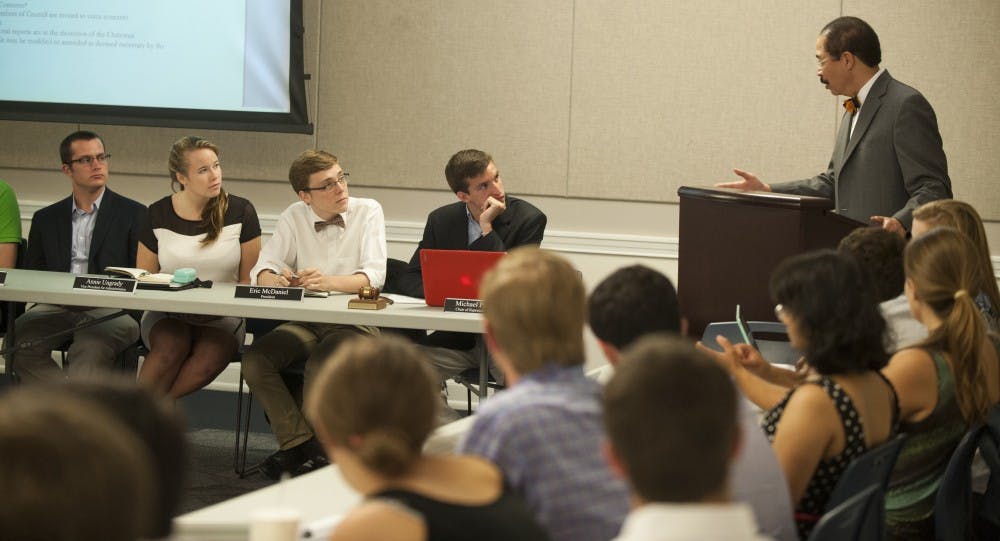Student Council addressed recent changes to AccessUVa, the University’s financial aid program, at its representative body meeting Tuesday evening. The discussion was prompted by the Board of Visitors’ decision to eliminate all-grant aid, requiring students to take out loans as part of their financial aid package regardless of family income.
Council President Eric McDaniel, a fourth year College student, said the recent Board decision was based on the financial sustainability of the program and whether the University has enough funding for future financial aid.
“The AccessUVa package is guaranteed through your four years at the University,” McDaniel said. “The University doesn’t know if it has the funds for the program, so the conversation is a prioritization debate.”
Third-year Batten undergraduate student Eden Zekarias, however, expressed concerns to Council about the restrictions to the AccessUVa program. She said the changes could have far reaching negative implications on the financial accessibility of the University.
A number of online petitions seem to agree, asking the University to reinstate all-grant aid. One such petition on moveon.org, which has garnered more than 7,000 signatures, credits the all-grant system for fostering socio-economic diversity at the University.
AccessUVa was instituted in February 2004. One of the program’s key tenets was to eliminate need-based loans for students whose family incomes are at or below 150 percent of the poverty level, replacing those loan with grants. Though effective, the program was growing too quickly, Chief Operating Officer Pat Hogan said at the August Board retreat.
During the 2012-13 school year, 2,953 students – 20 percent of the undergraduate population – received institutional grant aid, Steve Kimata, assistant vice president for Student Financial Services, said in an August interview. A University press release said the new loan requirements are projected to save the University $6 million annually by 2018.
During the summer, Council advocated keeping 100 percent of grant-based funding before the Board met to discuss the program, McDaniel said. “I think this is something that Student Council and students should keep a focus on,” McDaniel said. “It’s an unfortunate casualty in the shifting landscape of higher education,.”
Zekarias said she was skeptical of the idea that the University lacks funding to support student grant aid.
“When we see all of the new buildings around us, I think we need to start asking questions about where our money is going,” Zekarias said. “Though this is a practical logic that is used to maximize benefits while cutting costs, we are targeting students from low socioeconomic backgrounds.”







